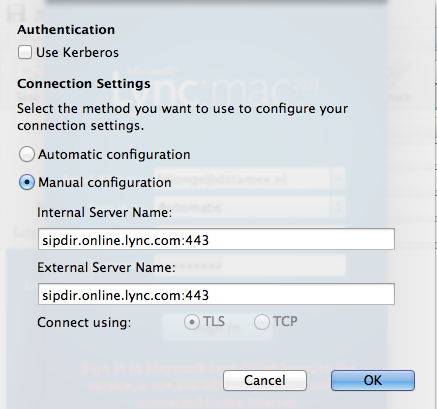This experience is the same as that in the Lync client on Windows, and means Mac users have the same control over incoming calls as Windows users. Online Meetings. This is where the big improvements have been made. The Lync for Mac 2011 client can now join and create online meetings created by Lync, no more Web Scheduler! Unable to create group, add or pin contacts that also have Lync accounts in our company. I can contact but need to search every time for the contact. I am using a MacBook Air with the latest OS and applications. It appears to be only a MAC issue because other contacts using MS Windows are not having this problem. Please provide a solution.
Skype now supports Mac OS X’s latest version — Yosemite users rejoice.
The new version not only supports Mac OS X Yosemite, but it also has better group profiles (making it easier to copy a link or leave), and a couple of crash fixes. Skype 7.0 came out only 20 days ago and had a myriad of small design and feature updates.
Microsoft has also updated its Lync for Mac app, adding support for Yosemitie, media resiliency, and conversation history.
Regarding its media resiliency, the company notes in a blog post:
First, if a network disconnect occurs, Lync for Mac will now automatically rejoin a meeting or reconnect a peer-to-peer call as long as network connectivity is re-established within 30 seconds.
(Try it for yourself. Setup a Lync video call on your Mac. Quickly disconnect and reconnect your network cable, or disable and re-enable your wireless connection. You’ll see the video freeze when the network drops and then restart once connection is re-established.)
Second, Lync for Mac will now maintain the media connection for peer-to-peer calls if connectivity is lost to Lync Server or Lync Online. This lets voice calls continue even when presence information is no longer available.
The new Mac app also has conversation history that is actually saved in Exchange, not just local on your Mac. Perhaps the biggest advantage of this is that if a user chooses to save the history on Exchange, they can access it from different Mac computers — perhaps if they have one for work and for personal use, for example.
In the recent article “Office 365 – Understanding Archiving in Lync Online“, I spent some time going through the differences between Conversation History and Archiving in Lync Online. While I’m not a Mac user, a commenter on that article asked about the behavior on a Mac. Certainly a valid question,
after all, anyone that has used the Lync client on the Mac knows that it’s quite a bit different than the Lync 2013 client in Windows.
Coincidentally, a few days later, Microsoft released an updated Lync client for Mac and in the release notes were specific references to changes in the functionality of Conversation History as well as a mention about Archiving. In the interest of providing a more complete story about Archiving in Lync Online, I added a couple Mac OS X installs to my lab environment.
Do the Mac clients honor Lync client policies settings?
Would there be a difference in the behavior between the new “Lync for Mac 2011 14.0.10” client and legacy versions?
The results of my testing are below…
I used the following two machines in my testing:
| OS | Mavericks (10.9.5) | Yosemite (10.10) |
| Lync | 14.0.9 | 14.0.10 |
| Outlook | 14.4.5 | 15.3 |
As in my previous article, I tested with both Litigation Hold and In-Place Hold. I also applied the appropriate Lync Online Client Policies such that Conversation History should be blocked.
Lync Client Policies
The Essential Guide to Microsoft Teams End-User Engagement
We take you through 10 best practices, considerations, and suggestions that can enrich your Microsoft Teams deployment and ensure both end-user adoption and engagement.
I assigned the “ClientPolicyNoSaveIMNoArchiving” Client Policy using the following command:Grant-CsClientPolicy -PolicyName Tag:ClientPolicyNoSaveIMNoArchiving
Contradictory to the use of the word “Archiving” in it’s name, this policy has nothing to do with Archiving and is designed to disable the automatic saving of IMs to the “Conversation History” folder (EnableIMAutoArchiving = False) and ability of a user to save IM conversations (DisableSavingIM = False).
While the 14.0.9 client does not have the “Conversation History” functionality, the 14.0.10 client added this feature and it does appear to honor these Client Policy settings.
Conversation History

This is where the Mac client varies from the Windows Lync client. The Mac client has an option to “Save Conversations Locally” which is separate from the “Conversation History” functionality. This “local store” is located in:/Users/%username%/Documents/Microsoft User Data/Microsoft Lync History/
The 14.0.10 client still has the local save option and unfortunately that setting does not appear to be governed by Lync Online policies for either the 14.0.9 or 14.0.10 clients nor can the setting be controlled locally by the “Managed Preferences” function.. Aside from the local store, the “Conversation History” functionality is pretty consistent with the Windows client.
Lync Client For Mac
Archiving
No real changes here from the Windows client. Litigation Hold still archives Lync conversations despite the documentation. Check out my previous article for a few key points if your goal is to avoid archiving Lync conversations.
Summary
- The “Conversation History” feature added in the 14.0.10 client honors the Client Policies in Lync Online.
- While you can disable “Conversation History” in the 14.0.10 client, IMs can still be saved in the local store which is controlled locally in the Lync client.
- Actual Archiving using Litigation Hold or In-Place Hold is consistent with the Windows client.
Download Lync Client
Did you find this article helpful?
Leave a comment below or follow me on Twitter (@JoePalarchio) for additional posts and information on Office 365.